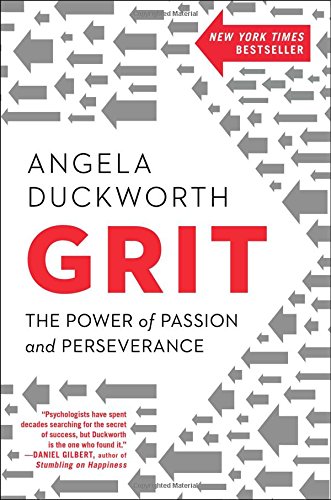Last night, I watched The Founder, a movie about Ray Kroc, the businessman who joined McDonald’s and turned it into the fast food powerhouse that we know and love. In the film, Ray Kroc, played by Michael Keaton, preaches the power of persistence. Ray had what Angela Duckworth might call “grit,” or a combination of passion and perseverance.
In Grit, Duckworth seeks out to discover what makes people successful. By studying grit paragons – Olympians, accomplished authors, general high achievers – she has built a profile of what makes someone gritty and how we can improve and grow our grittiness. She even created a grit scale, which you can use to assess your grittiness. To be gritty, one cannot simply have determination. One must also have direction, interest, purpose, and more.
Duckworth devised a “formula for achievement.” On one side of the equation, Duckworth argues that talent x effort = skill. On the other, skill x effort = achievement. Here, effort counts twice. What this means is we need to stop idolizing talent and realize, instead, that effort plays a more impactful role in our endeavors. Duckworth writes, “Talent is how quickly your skills improve when you invest effort. Achievement is what happens when you take your acquired skills and use them.”
One interesting proposed idea I personally like is taking on one “hard thing.” A hard thing is different for everyone. Maybe for you, it is running one mile every day. For me, it might be reading 52 books in a year. Duckworth recommends taking on one hard thing and seeing it through completion. It ends at its natural stopping point – you don’t simply give up. It is one of many ways to grow.
Overall, I enjoyed learning about the psychology of success. I recommend reading Grit if it sounds interesting to you.
Other Lessons Learned
- One can improve their grit through a change in attitude and by practicing
- Finding a purpose will increase your capacity for enduring hard work
- We can learn to be hopeless. We can also learn to be hopeful that what we do matters.
- Teaching kids that they are learners and hard workers is better than teaching that they are naturally good at something. Learners and hard workers are not afraid of failure. People whose value is derived from intrinsic talent are more likely to fear failure
- Culture plays a role in grit. For example, kids involved in extracurricular activities will be grittier than kids who are not
